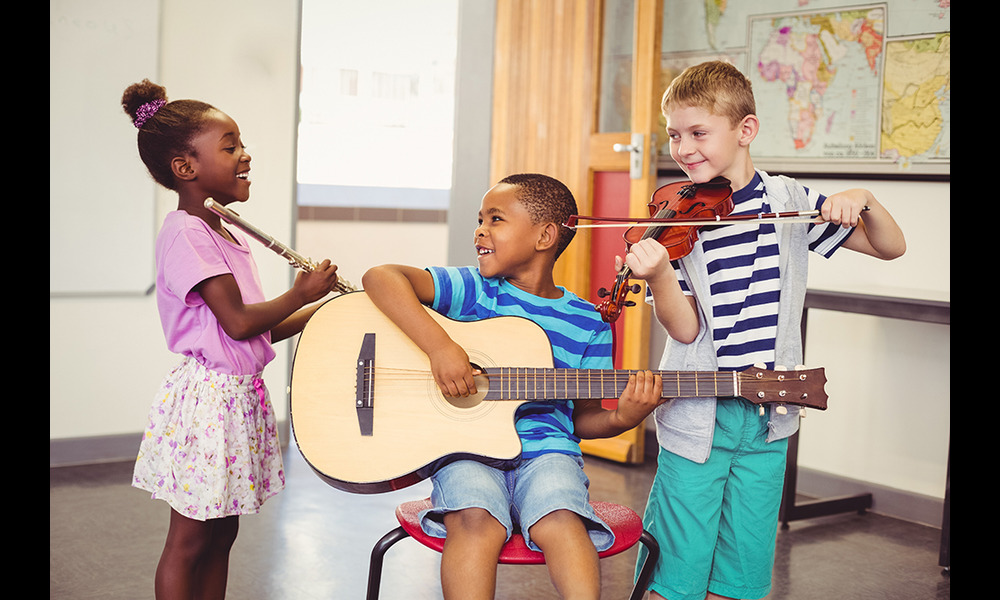In today’s fast-paced, technology-driven world, creativity and adaptability are essential skills. Arts and music education provides a unique pathway for students to develop these skills, equipping them with tools for both personal and professional success. Through exposure to visual arts, music, dance, and theater, students gain more than just technical abilities—they learn to think critically, communicate effectively, and express themselves fully.
In this article, we’ll explore the impact of a strong arts and music education program, the specific benefits it brings to students, and why this form of education is more important than ever.
Core Benefits of Arts and Music Education
- Boosting Creativity and Innovation
Creativity is a powerful skill that fuels problem-solving and innovation. Arts education encourages students to explore new ideas, experiment with different techniques, and think outside the box. This ability to think creatively not only enhances their academic performance but also prepares them for a wide range of careers that require innovative thinking. - Developing Strong Communication Skills
Arts and music education allows students to express their ideas visually, verbally, and emotionally. By participating in theater productions, dance performances, or music ensembles, they learn to communicate their thoughts and feelings to an audience. Visual arts, on the other hand, help students develop a visual language, making it easier to convey complex concepts or emotions in a clear and engaging way. - Building Teamwork and Collaboration
Arts education often involves group projects and performances, which teach students to work effectively in a team. Theater productions, music ensembles, and dance groups all require collaboration, listening, and compromise. These teamwork skills are essential for future success, as they prepare students to navigate diverse workplaces and contribute meaningfully to group efforts. - Encouraging Emotional Intelligence and Self-Expression
The arts provide a safe outlet for students to explore and express their emotions. Creating art, playing music, or performing allows students to process feelings in healthy ways, helping them develop emotional intelligence. This self-expression boosts confidence and resilience, giving students a constructive way to navigate life’s challenges. - Instilling Discipline and Patience
Learning an instrument, mastering a dance routine, or completing a complex art project requires dedication and patience. Arts education fosters discipline, teaching students to work steadily towards their goals. These qualities of perseverance and self-motivation are valuable in any field, supporting students’ success long after they leave the classroom. - Fostering a Lifelong Appreciation for Culture and Diversity
Arts education exposes students to different cultures, historical periods, and creative perspectives, helping them develop a broader worldview. By learning about diverse artistic traditions, students build a lifelong appreciation for cultural richness and diversity. This cultural awareness fosters empathy, helping them become open-minded, compassionate individuals.
Who Benefits Most from Arts and Music Education?
Arts education offers invaluable advantages to students of all ages and backgrounds. Here’s a look at who stands to benefit most:
- Young Learners Building Foundational Skills
For young children, the arts provide a foundation for developing fine motor skills, creativity, and focus. Early exposure to music, drawing, or dance nurtures curiosity and encourages a love for learning. - Elementary and Middle School Students Gaining Confidence
As students grow, arts education helps them develop confidence in their abilities. Performing on stage, completing art projects, and working in groups build self-esteem, encouraging students to take risks and embrace challenges. - High School Students Preparing for the Future
Arts and music education are especially beneficial for high school students, who are beginning to consider their futures. Arts education provides them with critical skills, such as communication, collaboration, and creative problem-solving, which are essential for college and career readiness. - Students Interested in Cultural Awareness
The arts foster an appreciation for cultural diversity, making arts education valuable for any student interested in learning about the world. Through exposure to various art forms, students gain a better understanding of the beauty and complexity of different cultures and perspectives.
Why Arts and Music Education is Essential in the Modern World
In a time when technology and automation are reshaping the job market, skills like creativity, adaptability, and emotional intelligence remain irreplaceable. Arts education cultivates these essential qualities, giving students an advantage in an increasingly complex world. Research shows that students involved in the arts perform better academically, demonstrating improved memory, critical thinking, and problem-solving abilities.
Additionally, as our society becomes more interconnected, the ability to understand and appreciate cultural diversity is vital. Arts education fosters this cultural literacy, helping students navigate a globalized world with empathy and respect.
Investing in a Well-Rounded Education
Arts and music are not just add-ons to education—they are integral to developing well-rounded, capable individuals. From building creativity and confidence to enhancing social and emotional skills, arts education provides students with lifelong benefits.
Curious about how arts education can transform your child’s learning experience? Contact us today to learn more about our comprehensive arts and music programs or to schedule a consultation. Let’s inspire creativity, resilience, and a love for the arts in your child, setting them up for success in a diverse and dynamic world.





